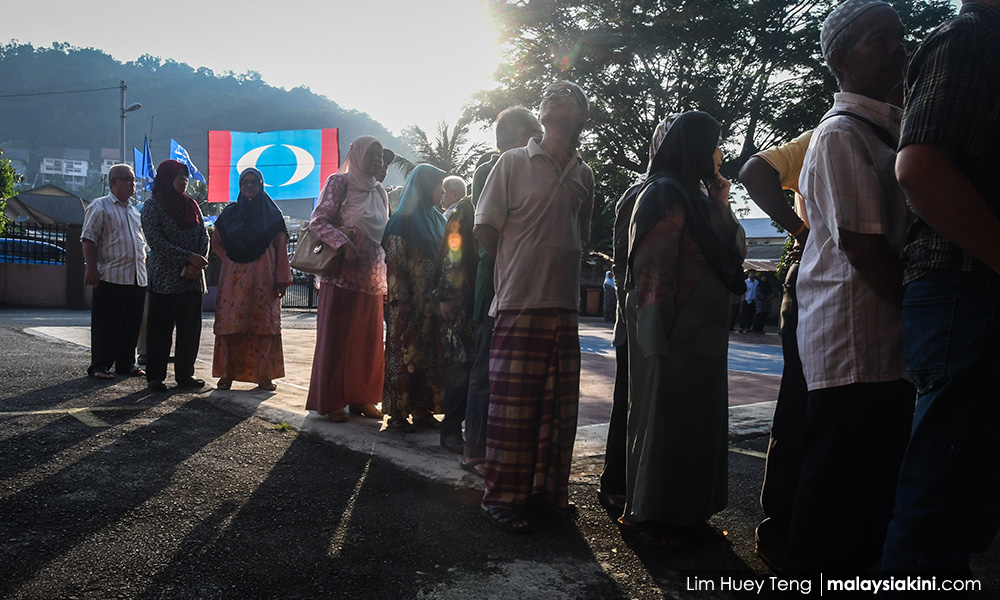
In this quiet morning in Kuala Lumpur – after more than two weeks traveling across Malaysia learning from the graciousness of ordinary citizens in the campaign – it is apparent a political storm is coming.
Roads were packed with voters going home, resolute and purposeful. Conversations in rest areas spoke of undaunted commitments to change and a deep love of Malaysia. Even traditional BN supporters en route recognise that there are dark clouds on their horizon, although many continue to believe that their advantage of money, machinery and manipulations will pull them through the election. Some think it will be a comfortable margin.
My estimate is that we are looking at a difference of 30 too-close-to-call seats that can swing in favour of either side at the national level. There will be many surprises. BN still holds the lead, but it has been on a direction of diminishing returns in the course of the campaign.
Caretaker prime minister Najib Abdul Razak did not control the narrative. Pakatan Harapan chairperson Dr Mahathir Mohamad has given Malaysians the strongest chance to unseat the BN since independence.
The structural advantages of malapportionment, gerrymandering and voter movement/exclusion for the BN should not be discounted, as they conservatively affect at least 20 seats. Also important is the reality that the Najib administration has significant vested interests in staying in power.
At the state level – Selangor, Kelantan, Terengganu, Johor, Perak, Negeri Sembilan, Sabah, and even Malacca are in play. The last five have a reasonable BN advantage. Penang should be retained by Harapan.
An emotional election
Sentiments across the country are strong, as this election has evoked a combination of emotions. There are many who are fearful, worried about the risks and the consequences of the election.
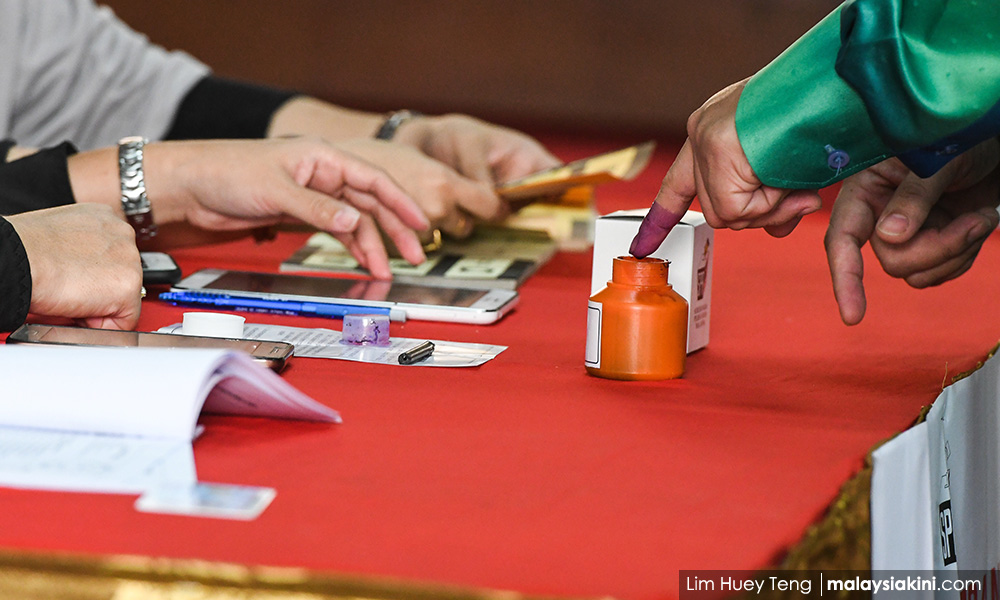
We find this particularly expressed among women, and among many Chinese Malaysians who are uncertain of whether change is possible. Some Malays in rural areas expressed concerns about Chinese power and the DAP in particular. Decades of racial politics have left an imprint, as insecurity has been an important tool for political power.
Others are angry. Not just about economic issues and the GST, but the fact that the BN leadership has damaged the country’s reputation. Malaysians understandably have deep pride in their country and have been affected by the charges of kleptocracy.
There is also anger at the unfairness in the election process, such as the blatant measures of disqualifications and the early taking down of banners. Perceived cheating will not be acceptable to many.
Many BN supporters are also angry – at Mahathir – and the uncertainty this election has brought home for them. This is about their families and livelihoods and such feelings are understandable, even if they are resented by others.
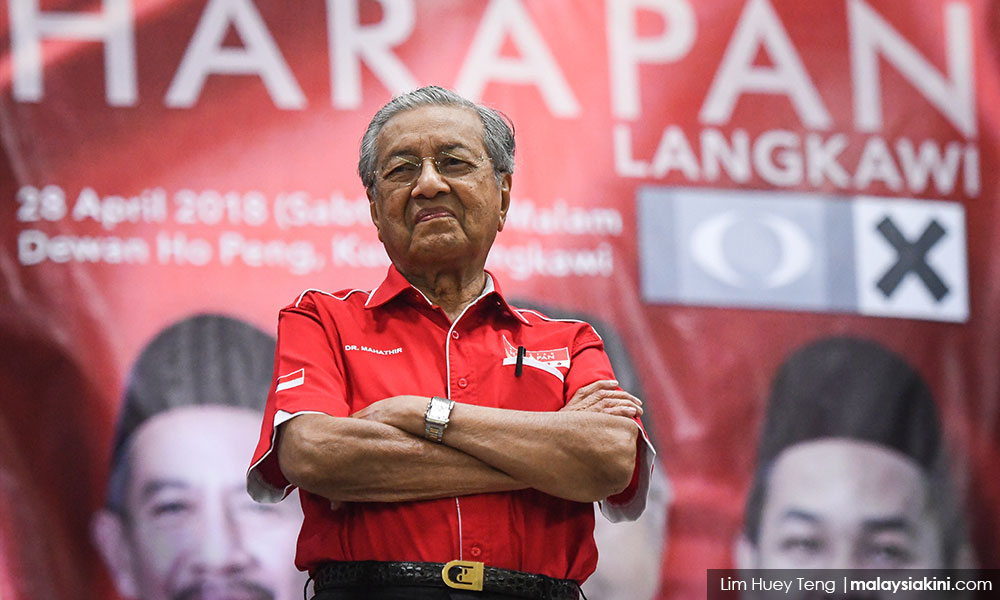
There are concerns with betrayal. This is on two fronts – among Umno grassroots directed at Mahathir and among ordinary citizens directed at Najib. I have listened to many voters who have been in turmoil over their vote this time, with the level of voters leaving BN and Umno behind and embracing a new alternative unprecedented.
Another key issue will be whether the PAS leadership betrays its party faithful in favour of cooperation with a potentially weaker Najib. An Umno-PAS cooperation is more likely than ever before, as there are calls for a Muslim-only government in some quarters.
This sense of betrayal and anger is tied to revenge. Be assured that if Najib wins comfortably, those who have been seen to have changed sides will be potentially targeted. Many in PAS have also tied their contestation of over 100 seats to being a spoiler against its personal ‘enemies’ – Amanah, PKR and DAP.
Amidst all of this negativity, there is hope, as Malaysians tap into their sense of confidence in themselves and their fellow citizens. Even more than in 2008, the multi-ethnicity of crowds and campaigns speak to bridges across races. While Malays have been seen as those moving allegiance, the storm that could happen is a Malaysian one.
Perak: Malaysia’s political bellwether
Perak is an important place to see how heavy the rain will be. From the breathtaking lakes in Gerik to the industrious Kinta Valley, Perak has traditionally been an indicator of political fortunes in Malaysia.
This is true from the anti-colonial resistance to the historic 2008 election. Not only is the state representative of the demographic composition of Peninsular Malaysia and captures the combination of urban intensity with rural remoteness, those from Perak are geographically at the crossroads the country, feeling the pulse from Malaysia’s many diverse regions.
Both BN and Harapan believe they will win the state, while PAS is claiming to maintain its base, especially in the north near the Kerian River, and its traditional stronghold areas such as Bukit Gantang. With split voting this means that they will shape the results, and in some cases even win.
In the GE14 campaign, Perak was largely ignored, in fact taken for granted. The BN assumed it had done its groundwork before election day to maintain power, while Harapan has assumed Perak will follow what they expect to be the national trend.
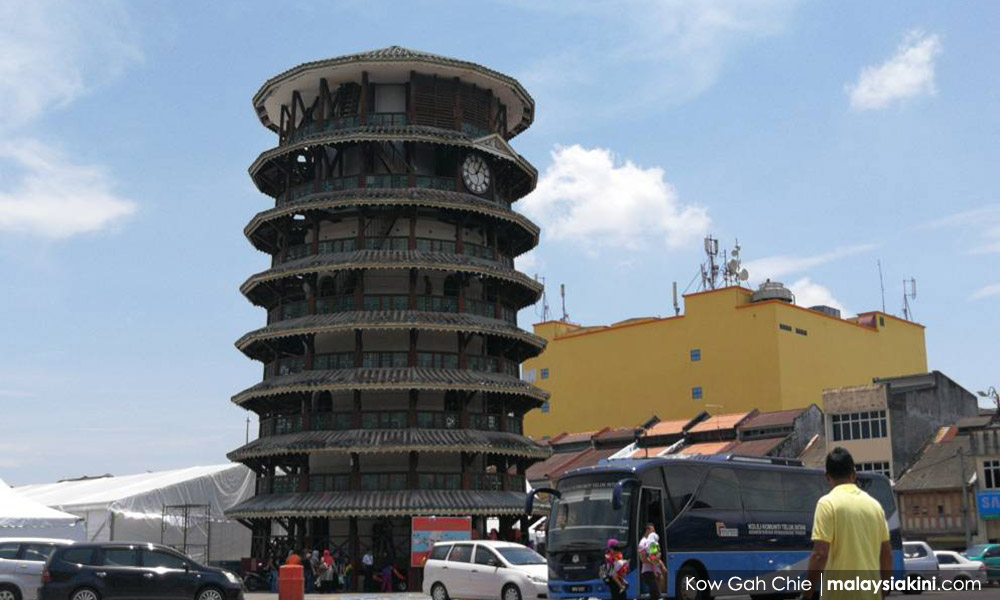
With Perak’s mixed ethnic composition it is assumed that the state will move back into opposition’s hands. These assumptions may be misplaced, as the lack of adequate attention to Perak has had an impact.
On the ground the campaigns were largely less dynamic than in the past, and there was disgruntlement that Mahathir did not opt to visit the state during the campaign itself. His only visit before the campaign was to Kamunting, and this was relatively disorganised and gave the opposition less traction than in other locations.
There was considerable infighting within the opposition, including over the chief minister position, and grumblings of weak candidates. As such, the BN goes into election day with an advantage in a state that was seen as winnable for the opposition.
Perak also has the most systematic and comprehensive changes related to the delineation at the state level, arguably more than Selangor. Seats have been especially carved out for Umno, strengthened for other BN component parties, namely MCA, and weakened for the opposition as a whole, especially in areas where PKR and Bersatu candidates are contesting.
This said, the evidence of momentum for the opposition was evident on the ground – in Telok Intan and, interestingly in Tanjong Malim, a seat the MCA has not lost since independence.
In Parit, a historic constituency, voters harped on concerns with cost of living, echoing the message from this area decades earlier in the 1960s over the price of coconut oil. The level of disgruntlement was quite different than either that in either the 2013 or 2008 polls.
What will be critical in the final count in Perak is returning voters, those on the crowded trunk roads and hectic North-South highway. As in Malaysia as a whole, it will come down to a few too-close-to-call seats.
Scenarios of change
This morning, my messages have been flooded with requests for predictions. As an analyst, I am looking at turnout levels today – a high turnout this time round speaks to greater losses for BN. I still hold onto the importance of the changes in the electoral boundaries and three-corner fights as weakening Harapan.
Right now, this early morning, I see three scenarios – a BN victory less than that of GE13, and a hung parliament tied to the kingmakers of PAS and Parti Warisan Sabah, and an outright Harapan win, if slim. I weigh heavily on the first option.
I note that some others continue to see a strong BN victory – even a two-thirds victory. My own view is that this would be tied to potential questionable machinations in the system. Concerns about the Election Commission failing to stamp of voter ballots in KL and elsewhere raise these sorts of issues, as is the questionable ferrying of voters.
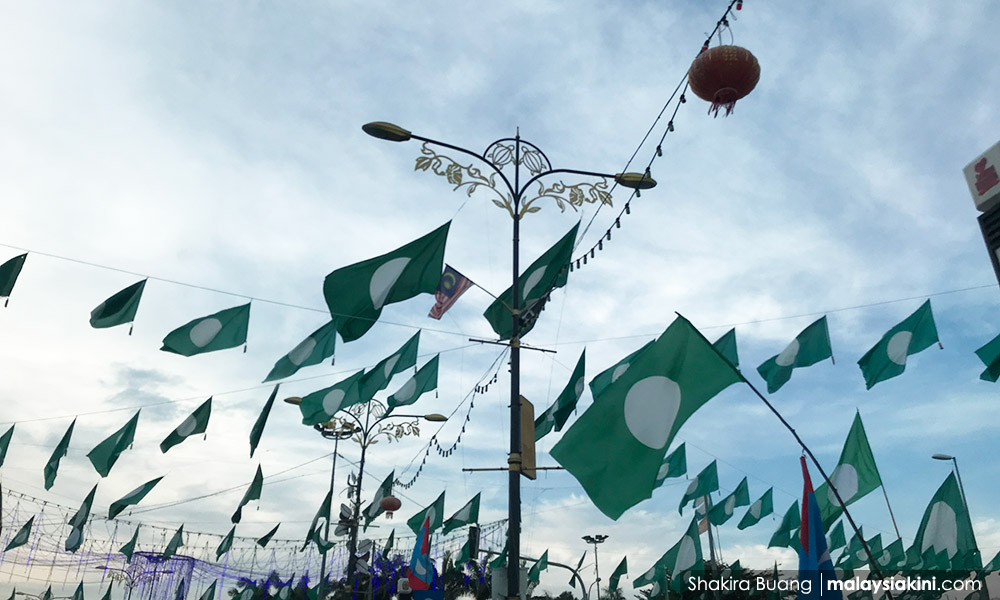
Where my analysis differs with others is the potential fortune of PAS. I see it stronger in its heartland states of Kelantan and Terengganu. In some places, it will be the recipient of anti-Umno sentiment, as in northern Perak in places such as Larut, and in Arau in Perlis compared to Harapan, in part due to weaker candidates.
On the road the PAS faithful driving home outnumbered Harapan flags, as the loyalties to the party run deep.
Studies such as Invoke’s ‘wipeout’ scenario only have served to strengthen PAS support and reduce potential split voting. It seems unrealistic in numbers predicted given sentiments in the rural areas. For many voters in places such as Bachok, PAS is the alternative they are most familiar with. It is seen as a ‘safe’ vote. Harapan machinery is very uneven outside of cities.
Those in the English media should not underestimate the dynamism of the discussions happening in the Malay media and strong Muslim sentiments among many voters.
PAS’s call for a ‘Muslim’ or ‘green tsunami’ is not only based on idealism alone. The fact that all the major contenders had strong Muslim currents in their campaign messages speaks to the reality of a core of deeply religiously aware voters. PAS does not need to win much of the Malay vote to advantage BN in close races, just 10 to 15 percent of the vote in some seats.
A different political landscape
Let’s take a moment to consider the implications of each scenario, as Malaysia tomorrow will be a different country whatever happens today.
The first scenario is a reduced Najib victory. He will be blamed. With the decline in support he will be seen as a loser, even if he holds a majority. The test is whether other leaders will step up the plate to challenge him.
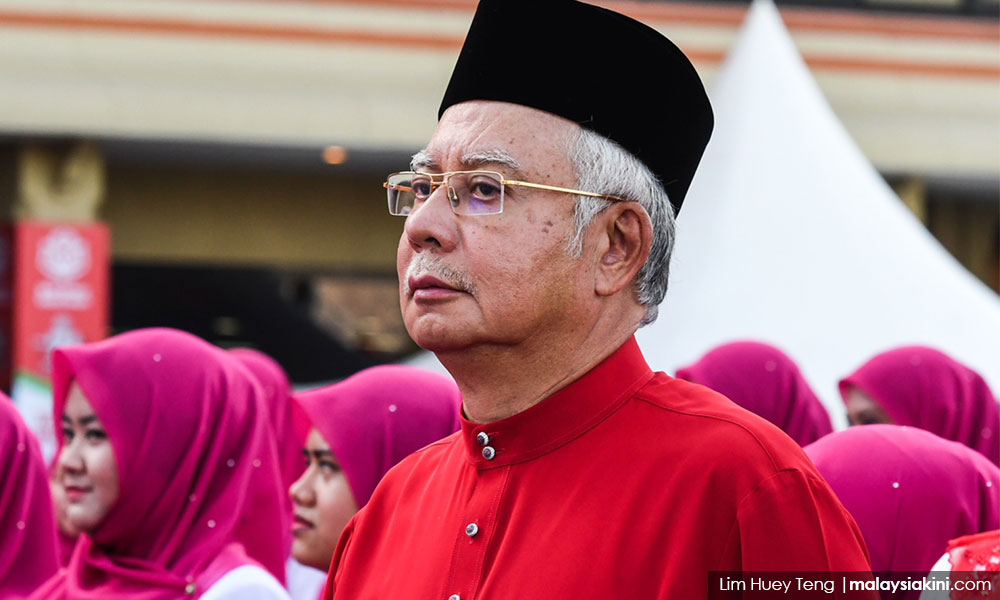
Najib has strong control of the party and resources as his disposal. A reduced majority should not be equated with a Najib departure as yet – looking at Umno itself. The pressures inside the party for the party’s survival are percolating, but they do not want the party to split further.
Crucial to Najib’s future is whether he loses Malay-majority seats. This scenario is likely to be a long drawn out affair, with considerable resistance. Recent history has shown that Najib has been a political survivor within Umno. Expect Najib to reach out to PAS and his friend Hadi to strengthen his numbers.
The second scenario is one of a hung parliament. Hadi’s PAS has apparently shown its Umno cooperation colours in GE14 and in recent statements to support BN candidates in Selangor and Penang. Key will be how many of Hadi’s men win and whether he continues to secure enough seats for his own political leverage. A new form of political coalition will be necessary.
Warisan is also important, although how many seats have survived the carpet bombing and ‘backdoor measures’ is yet unclear. East Malaysia will be extremely important in the final numbers of seats. If a hung parliament arises, money and positions will be on the cards across the political divide.
The third scenario is dependent on voter turnout and seat numbers in East Malaysia, both Sabah and Sarawak. This will only happen if voters themselves take this election in their hands. It is a steep hill to climb, but Mahathir personified the concept of ‘Malaysia Boleh’ and he himself has shown that spirit in the GE14 campaign given his age.
The storm is coming. It is now warming up in KL as voters stream to the polls. It will rain this afternoon and perhaps this evening as well – and it is likely to be heavy. Expect a long and interesting post-election period as the clouds will remain even after the votes are counted.
BRIDGET WELSH is an Associate Professor of Political Science at John Cabot University in Rome. She also continues to be a Senior Associate Research Fellow at National Taiwan University's Center for East Asia Democratic Studies and The Habibie Center, as well as a University Fellow of Charles Darwin University. Her latest book (with co-author Greg Lopez) is entitled Regime Resilience in Malaysia and Singapore. She is following the Malaysian GE14 2018 campaign on the ground and providing her analyses exclusively to Malaysiakini readers. She can be reached at bridgetwelsh1@gmail.com. -Mkini



No comments:
Post a Comment
Note: Only a member of this blog may post a comment.